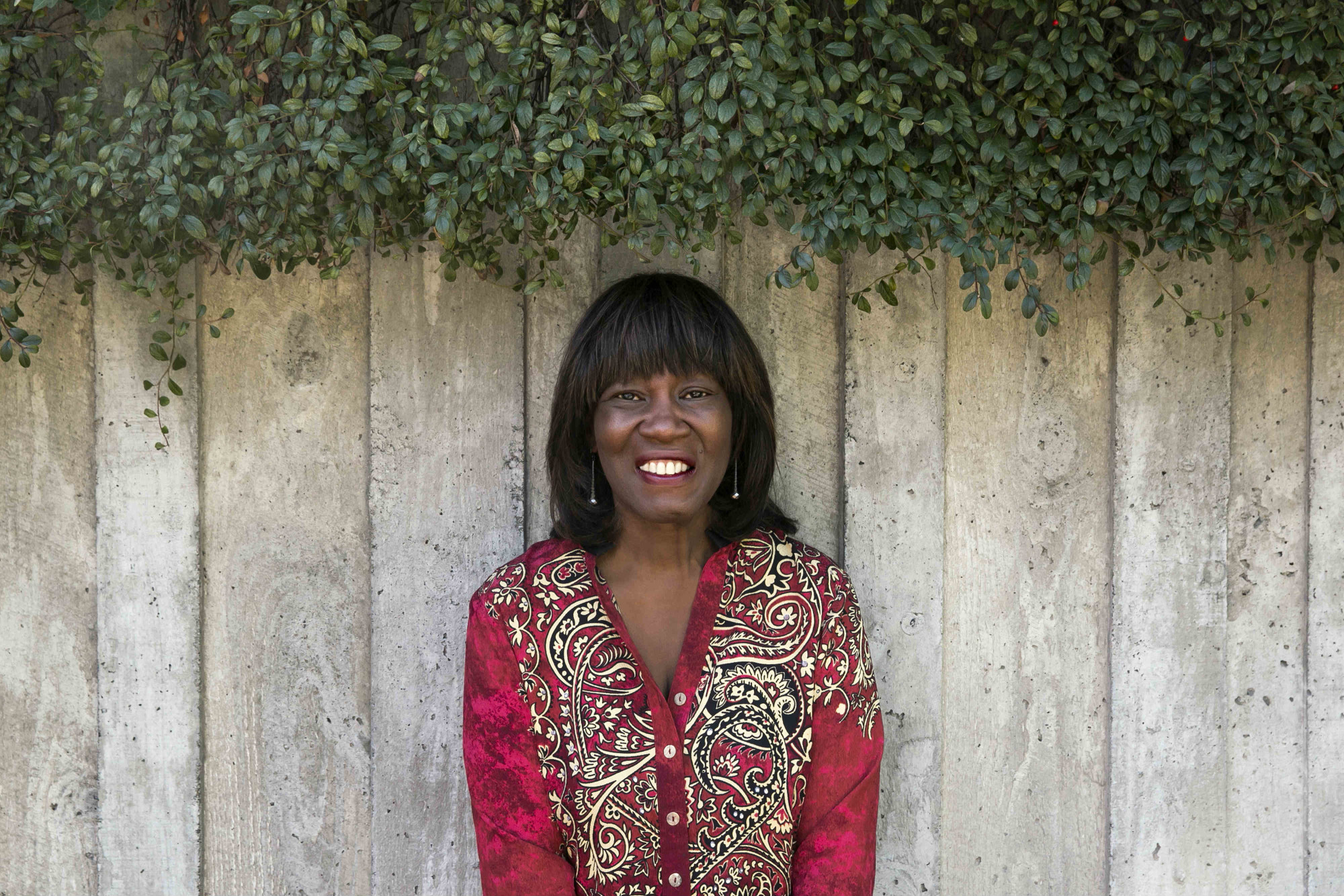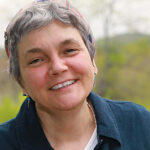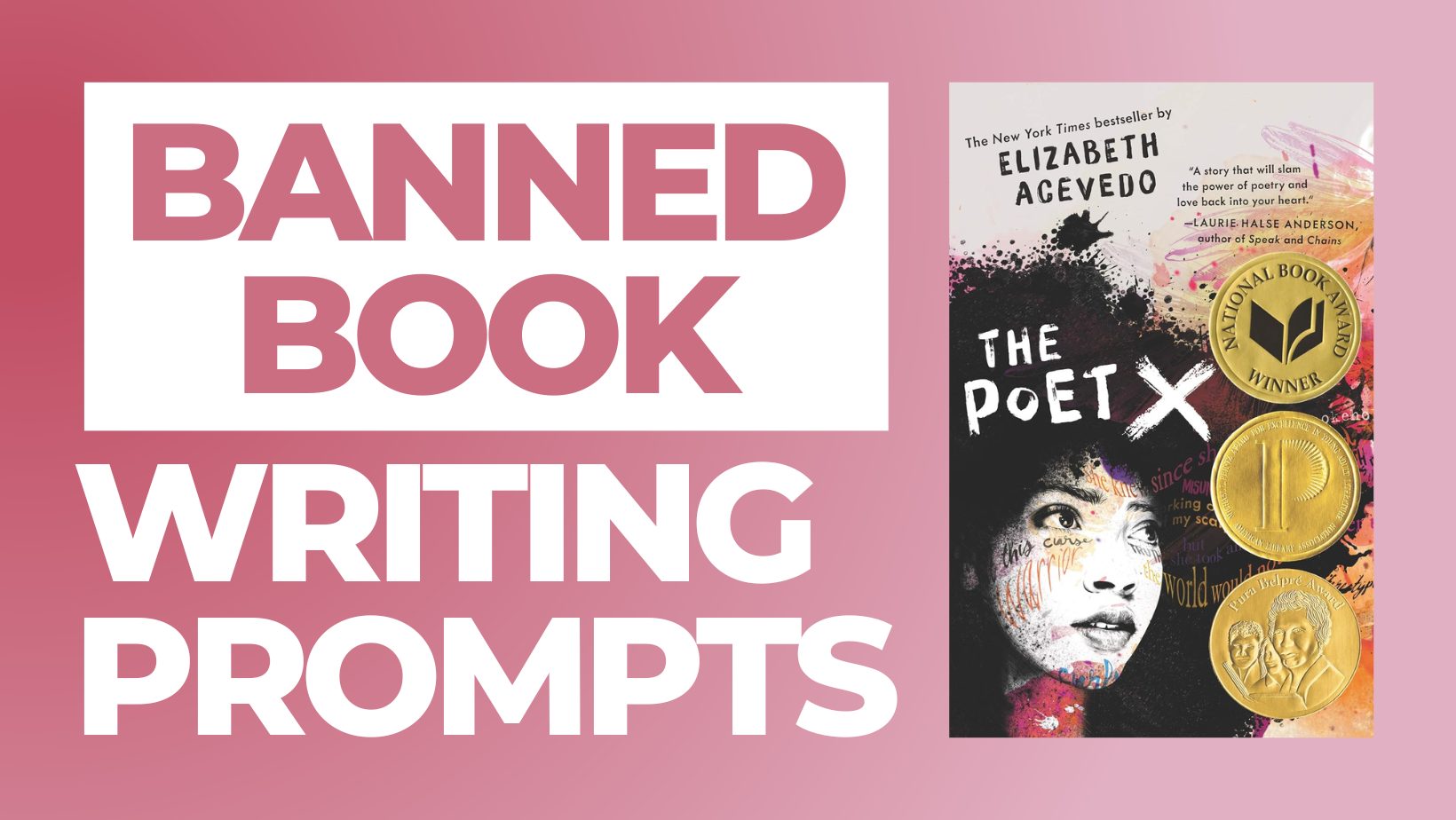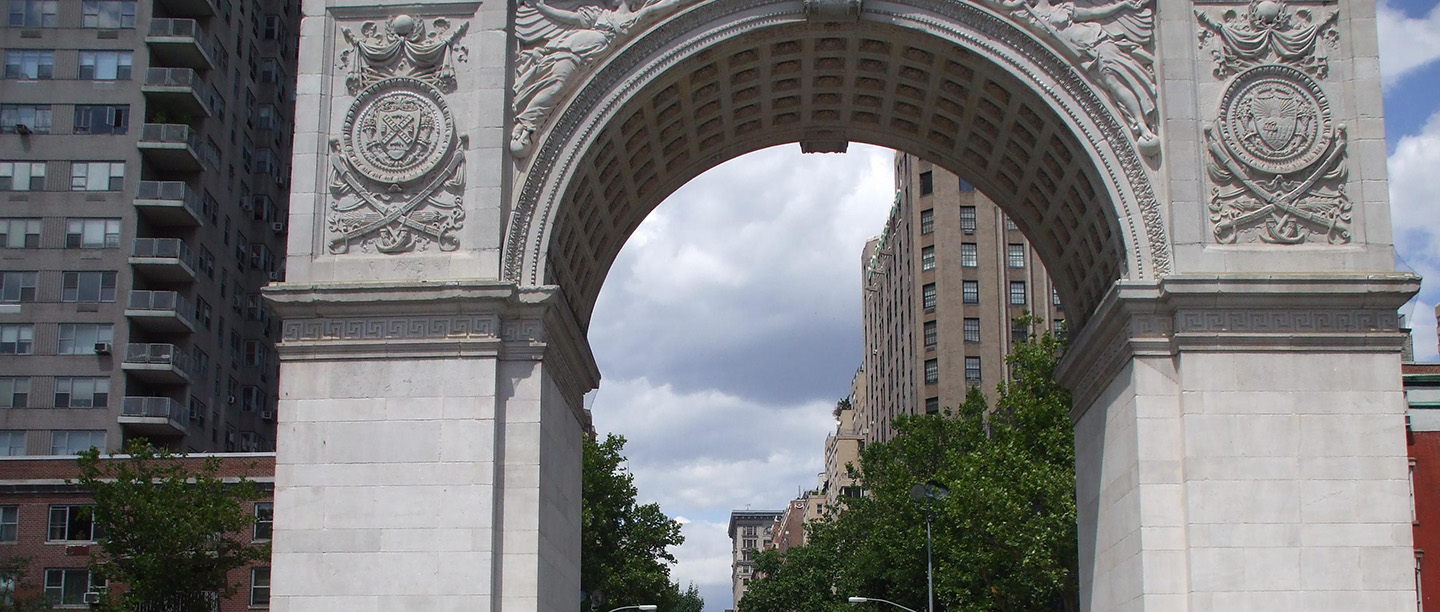In 2015, Bauhan Publishing published Sparks from the Anvil: the Smith College Poetry Interviews, a collection of interviews with superb contemporary poets by writer and teaching artist Christian McEwen. Teachers & Writers Magazine has been publishing highlights from this impressive book. Here, McEwen and Patricia Smith talk about poetic forms and pacing; about breaking through the role of authority figure in order to reach students in the classroom; and—thanks to back-porch chats Smith had with her father—about learning to look at the work in terms of the stories it could tell.
Patricia Smith is the author of six volumes of poetry, including Shoulda Been Jimi Savannah (2012), which was awarded the Bobbitt National Prize for Poetry from the Library of Congress, was the winner of the 2013 Lenore Marshall Poetry Prize from the Academy American Poets, and was a finalist for the William Carlos Williams Award from the Poetry Society of America; Blood Dazzler (2008), a National Book Award finalist; Teahouse of the Almighty (2006), a National Poetry Series winner; Close to Death (1993); Big Towns, Big Talk (1992); and Life According to Motown (1991), just released in a special 20th anniversary edition. She also edited the crime fiction anthology Staten Island Noir (2012). Smith is a Cave Canem faculty member, a professor of English at CUNY/College of Staten Island, and a faculty member of the Sierra Nevada MFA program.
Christian McEwen: There’s so much I admire about your work, but I’d like to start with your book Blood Dazzler, which came out in 2008, about Hurricane Katrina. You describe Katrina from outside and also from within: “I become a mouth, thrashing hair, an over-done eye.”
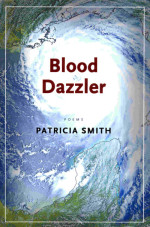
How hard was it to write about Katrina? Did you have the sense you’d already come into your mastery as a poet, or was it the writing of the book that taught you how?
Patricia Smith: That’s kind of a two-pronged question because as far as coming into my mastery, I was writing this book at the same time as I was getting my MFA. So I would write segments of the book, and I would automatically have another eye on them, and it pushed me to keep going. But at the time I wasn’t thinking, “Oh, I’m going to sit down and write a book about Katrina.”
There was one situation that kept pushing me. It was the story of the thirty-four nursing home residents who were left behind. I had an aunt who died in a nursing home, and my family was kind of charged with her care. I was only sixteen at the time, so I didn’t really know what I was doing, and she was in the later stages of Alzheimer’s. I would come into the room and my formerly god-fearing aunt would be throwing food at me and cursing like a sailor. But I remember she had a yellow button on the side of her bed, and no matter how rough things got, she could push that button and someone would come right away.
And when I read the story about the nursing home in St. Bernard Parish, I just imagined—the lights are out, the water is rising, and the residents are pushing buttons—and nothing’s happening. I could not get rid of that picture, so I decided that was the poem I wanted to write—not to make sense of it, but to process it in some way.
Because as witnesses, which writers are, these situations come to us, and we need to write our way into and past them. So I decided I would work on that poem, and since I had worked in persona quite a bit—because I got introduced to poetry by getting up on stage, and persona is a very effective device—what I wanted to do was to wind the clock back a little bit and give each of those thirty-four people a little bit of their voice back.
So I did that poem first of all, and I had a lot of questions. I’m not from New Orleans. I don’t have any connection to the Gulf. My only connection to Katrina was the same connection that those who had processed it through the news had. The only difference was that, as an artist, I felt it wasn’t just a witnessing, that I owed to myself at least to say, “This is something else human beings are capable of, this is something else nature is capable of, and I need to be able to understand it with my own voice. That’s how it starts to make sense to me.”
CM: I was tremendously impressed by your mastery of form.
PS: I always used to regret the fact that people could pick up my book, but they couldn’t hear me do the poems. But then I found out that there were things you could do with the spacing on the page, there were things you could do with meter and rhyme that could slow a reader down and that would set a tone beyond the actual words. The writing of Blood Dazzler was when those realizations were just popping for me.
Personifying Katrina, for instance, I felt there wasn’t any other way to do it. But when I was doing the poem about Ethel Freeman, the woman who died in her wheelchair while she was waiting with her son for a bus to take them from the Convention Center, I thought about the way older people speak, they have comfort pockets in their speech and they return to familiar words and comfortable phrasing, and I go, “OK, what’s a form that backs up onto itself, and comes back to these phrases?” And it’s a sestina.
CM: I love that poem. I have read so many sestinas and almost always they start to feel forced by the last third, or even half. And yours carried itself through right to the end.
PS: Thank you.
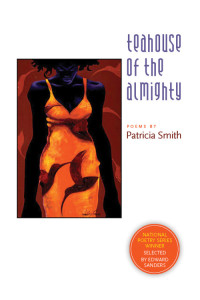
CM: I wanted to go back to an earlier book of yours, The Tea House of the Almighty, which was published in 2006, and ask you about one of the poems you wrote for your sixth-grade class, the one that includes the lines, “I rejoice when they kiss my face.”
PS: I was at a poetry conference in Asheville, North Carolina, and I read, and a woman came up to me and said, “I would love for my kids to hear you.” And she was a music teacher in Miami, and she said, “But we don’t have any money,” and I said, “I’ll come to you.” I slept on a pallet on her floor. And I went to see her kids, and they were amazing, although it was one of my first trips being a poet, starting to travel, and so I go in with this sparkly personality: “I’m here to teach you poetry!” The area had a very high incidence of drug use, so a lot of the kids had lost parents or sisters or brothers to AIDS, and I come bounding in with an ear-to-ear grin, and they’re looking at me like, “There’s nothing you can say that’s going to have anything to do with the way we live.” And I had to work really hard to convince them that their voices were legitimate.
I went back to that school probably every year for the next ten years. So this poem was written for the kids I met there, and in particular a little girl named Nicole who, during that first visit, was in school and her mother had died the week before.
CM: A few years back, I had a gig as writer-in-the-schools in the South Bronx, and I asked the children to write poems about loss. But most of them were poems about death. “My older brother went down to the bodega to get a pack of cigarettes, and he got in a fight.” The classroom became like a prayer meeting, with the children standing up one after another, “I have a dead one; I have a dead one too.”
So, I know your father was killed in a robbery, and I was wondering whether that is something that you shared with the children.
PS: When you come into a classroom, before you’re anything else, you’re an authority figure. So I see that as something I have to break through. I tell them about the type of neighborhood I grew up in; I sound the way I sounded then. I have a poem about cooking with my father—the main movement of the poem is not the fact that he’s dead, but it mentions it just enough, so kids are like, “What?” So I let them get the news from me and don’t hesitate to tell them that story, and almost immediately it’s “Me too, me too.”
They don’t communicate that way until someone they’re supposed to be looking up to admits some kind of loss or vulnerability or, “I was once in your shoes.” They come in buzzing about gunshots they heard the night before, and I say, “Let me tell you about the West Side of Chicago,” and then it’s like, “Wow, you know, you grew up like me and look what you’re doing!” It becomes more of a conversation.
It takes a lot of time at the beginning to convince a group that everything they say is OK. You can’t go in with a form workshop—a workshop that you’ve thought of that’s one size fits all—it doesn’t work. You need to find out where you’re going, what the neighborhood is like, what the teachers’ attitudes are toward the kids. You have to do your own background work, and you do it by going straight to the kids. “You know, tell me…”
CM: There’s a lot of very brave storytelling in your work: the poem in the voice of the abused child, the poem about music and sex, terrific stuff, but stuff that one imagines the Mama might not…
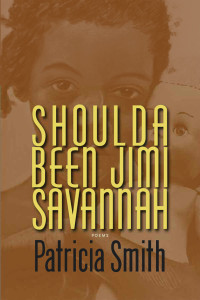
PS: My new book is called Shoulda Been Jimi Savannah, which is the title poem. My mother told me later in life that my father wanted to name me Jimi Savannah when I was a baby, and I said, “You talked him out of it didn’t you?” It would’ve been a great poetry name.
I think I’ve come a long way in that it started out being a book about Motown, because I love Motown, then I realized it was a book about being first generation up North, and there are poems in there about my mother, who was never really satisfied with my color or anything else about me. She’s up North and she’s got this child to raise and she’s kind of confounded, so in her head it’s, “Be as much like the mainstream as you can, speak the way white people speak, look the way white people look.”
And one of the poems is about my mother in the summer. When I’d get darker she would put Lysol on a washcloth and scrub the back of my neck because it was too black. Now, I put that poem in the book and I can see the horrified recognition by a lot of people. My mom used to put Tide detergent in my bathwater because she thought that would make me lighter. So my vow to myself, now that I’m about halfway through my poetic career, is what am I waiting for? If indeed I’m telling my own story so people can see the parallels to their stories and go tell theirs, then there’s no reason for me to hold back on any of it, because while I’m telling it, I’m trying to make sense of it myself.
I’ve been holding onto that information for a long time. There are things in there about my father, about the hardships they had all of the sudden finding themselves in Chicago with this child. They would instinctively know how to raise a child in the South, but all of a sudden there were all these rules.
So my mother will not read these poems. If you went to my mother’s apartment, you would see my books on a doily on the corner of her dresser, spine un-cracked because she knew from way back, when she saw me read once, that I do mention my family. It doesn’t matter if it’s good or bad, just the very secretive culture. There’s a lot of whispering and that’s how I came up. So for me to stand on a stage in front of strangers or to put out a book that just anybody could pick up and talk about, that horrifies her. So we’re not very close, because she cannot recognize my passion.
Imagine having something you’ve decided to do with your life and then what’s supposed to be your closest and most supportive relative says, “I won’t have anything to do with it.” My mother could call right now and say, “You know, the Post Office is hiring.” This whole idea of writing creatively for a living has never made sense to her. I can come to a reading in Chicago and say, “Hi, I’m in town,” and she goes, “What are you here for? Why aren’t you at home taking care of your husband?” I love that part.
I don’t have any brothers or sisters, so my writing is doubly important to me because I’m kind of chronicling my own life—what I can piece together of its past, which includes trying to piece together my parents’ past. So that’s what I’ve been trying to do in this book [Jimi Savannah].
CM: Just two more questions. One is, given that you got really so little encouragement from your mother, and that your father had died…
PS: My father was killed when I was twenty-one.
CM: I misunderstood, I beg your pardon.
PS: I had gotten my first writing job, I was writing a newspaper—no, it wasn’t even writing. I was like an editorial assistant.
I was at work and my mother came. They called me outside, and they said that my mother said my dad hadn’t come to work that day, and someone had broken into his place and shot him. And I said, “No, they didn’t break in,” because he shared an apartment—he lived there and there was another guy who lived there, so it was like an apartment with two doors, and the other guy had brought a relative up from the South, a nephew or something that had just gotten out of jail, and told him he could stay.
And my father loved big cars, and this guy saw my father driving this big car and thought he had money, so all I know is—my father—his back was turned like he was going back into his part of the apartment and he had gotten shot in the back of the head. And the guy had taken his car keys, gone out to the street, dropped my dad’s car keys by the car, got on a bus, and then was bragging to people on the bus that he had just killed someone and the police were waiting for him when he got off.
It was probably the hardest thing ever because I was the dictionary definition of a Daddy’s Girl. I didn’t even know my mother; she was not very emotionally affectionate. My dad listened to all my stories. So I pretty much decided at that point that I wanted to be a storyteller, like he was a storyteller. But yeah, he worms his way in and out of a lot of pieces.
CM: And in the years since, where have you found the support that he gave you?
PS: I’d like to personally thank my fifth-grade teacher, Carol Bernawski. She told my parents that I should try not to get into the school I was supposed to go to, but somewhere else. You know how you can get to a point and look back on it and realize how pivotal one year was in terms of how you thought of yourself? I was in a school where everybody was supposed to fail. She said, “Guess what? You didn’t fail, and there are other things you can do.” She suggested I go to this big private school, which just kind of intimidated my parents, so I wound up not going, but I love that she existed.
And then I got things from the performance poetry community. There was kind of a chasm, the academics and the performance people looking at each other, glaring at each other like they didn’t all use language, so we very much just turned into ourselves and said, “Don’t worry, we’re doing the right thing.” We got up on stage and read things that were sometimes intensely personal because that was how we were processing, so for that reason I’m closer to some poets than I am to my mom.
CM: There are a couple of people who show up in your more personal poems, figures like Mamie Tuttle, holding court on her lopsided wooden porch, or Sergei, waving his gun, and I wondered how it was to use real-life stories, as opposed to public information, in the poems, whether it felt different or difficult.
PS: Oh, it didn’t feel difficult; as a matter if fact, it feels like that’s the way I should do it. I never thought about doing it any other way. I mean I didn’t sit in a classroom and have someone tell me, “These are the choices you have to choose from,” instead of me going and trying to find my own way. So before I’ll call myself a poet, I’ll call myself a storyteller.
My father, when he came up from Arkansas during the Great Migration and got his job working at the candy factory in Chicago, he brought with him what I call “the tradition of the back porch.” At the end of the day he’d sit and he’d go over his entire day, and all of the people at work would become characters, and the next night I’d be like, “Well, what happened with so-and-so?” So I learned early on to look at the world in terms of the stories it could tell, and to look at someone that I knew, and see not only how they fit in as part of my story but also be intensely curious about theirs.
Part of it is, too, that after my father died, my mother and I kind of looked at it each other like, “And you would be who?” Because when she left the South, she really wanted to leave the South, she didn’t want to talk about it anymore, she didn’t want to admit being from there, so it shut off a lot of my history, and I don’t want to do that anymore.
So if putting those situations in place and putting those names in place helps somebody after me say, “Oh! Well this is how she lived,” then that’s what I want to do.
—December 18, 2012
Smith College, Northampton, MA
Editor’s Note: This interview has been edited and condensed for space considerations and clarity.
In this video, Patricia Smith talks about and performs a poem from Blood Dazzler.
Christian McEwen is a freelance writer and workshop leader originally from the U.K. She is the author of several books, including World Enough & Time: On Creativity and Slowing Down, now in its eighth printing. She edited Jo’s Girls: Tomboy Tales of High Adventure; Sparks from the Anvil: the Smith College Poetry Interviews; and, with Mark Statman, The Alphabet of the Trees: A Guide to Nature Writing. Christian has enjoyed residencies at Yaddo, MacDowell, Mesa Refuge, and the Virginia Center for the Creative Arts, and has received a fellowship in playwriting from the Massachusetts Cultural Council. Her new book, In Praise of Listening, will be published in October.

